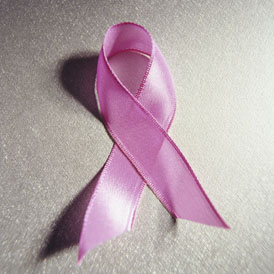Risks of breast cancer over-diagnosis ‘not made clear’
Women undergoing NHS breast cancer screening are being “misinformed” and are not told about the risks of over-diagnosis, researchers say.

Those running the NHS breast cancer screening programme have “stuck to” beliefs from 25 years ago about the benefits of mammograms, and supply women with “astonishingly misleading” statistics on death rates, according to researchers from the Nordic Cochrane Centre in Denmark.
The paper also says the NHS fails to give women “an informed choice” because its literature lacks balance and ignores criticism of the screening programme. Writing in the Journal of the Royal Society of Medicine (JRSM), the team said the risks of “over-diagnosis” had been downplayed.
The researchers called for more honesty from those behind the NHS programme, adding: “Spokespeople for the programme have stuck to the beliefs about benefit that prevailed 25 years ago.
Deaths from breast cancer are falling because treatment is improving Professor Peter Gotzsche
“Concerns about over-diagnosis have not been addressed… and official documents still downplay this most important harm.
“Women therefore cannot make an informed choice whether to participate in screening based on the information the programme provides. This must be changed.”
But the paper has been criticised by breast cancer charities. Chris Askew, chief executive of Breakthrough Breast Cancer, said the centre’s analysis was not useful: “We strongly recommend all parties remember the women at the heart of this debate and work together to do what is best for them.
This report does not present new data and current evidence supports our belief that screening saves lives.”
For the programme, it has been estimated that screening prevents one breast cancer death for every 400 women screened regularly over 10 years. But today’s researchers argue this calculation “is wrong by a factor of five”.
Women having treatment for “harmless” tumours
In 2009, experts from the same institution said one in three breast cancers detected by screening may actually be harmless. Data from the UK, Canada, Australia, Sweden and Norway showed some women undergo unnecessary treatment for cancers that are unlikely to kill them or spread.
Some cancers grow so slowly that the patient dies of other causes first, or the cancer remains dormant or regresses. The team has also found that breast cancer screening programmes appear to have no effect on death rates.
Their analysis found few differences between women who were screened and those who were not screened when it came to deaths from breast cancer. Today’s paper says information provided by the NHS breast cancer screening programme regarding lives saved is greatly exaggerated.
“The claim that death rates have fallen ‘in part from earlier diagnosis associated with screening’ is astonishingly misleading,” said Professor Peter Gotzsche, co-author of the paper and director of the Nordic Cochrane Centre.
“Deaths from breast cancer are falling because treatment is improving. There’s been a similar fall in the age groups not invited to screening.
“In this respect, and many others, the programme persists in misinforming the public. It was forced to revise its leaflet inviting women for mammography but the new leaflet and their latest annual review continue to repeat incorrect mortality estimates.”
